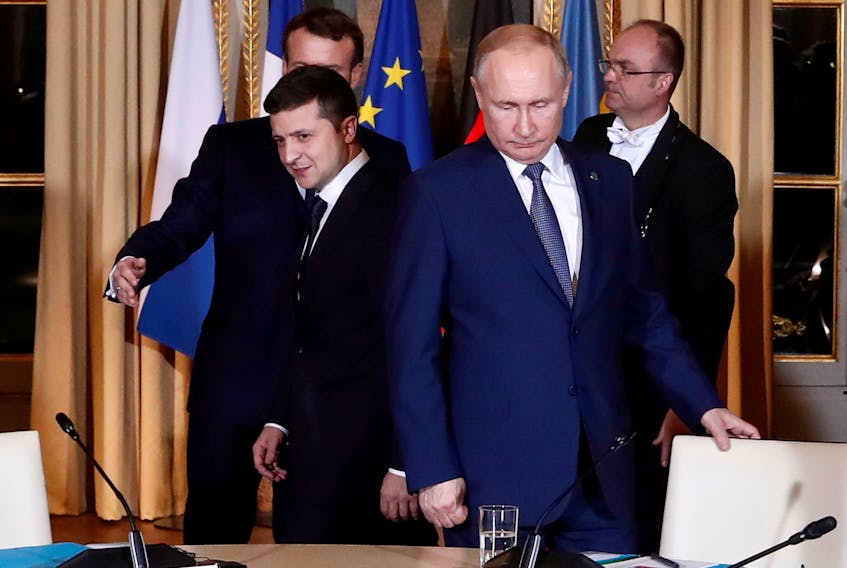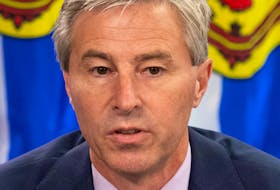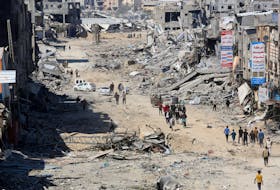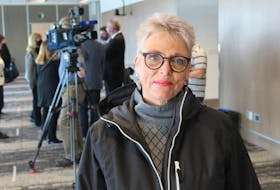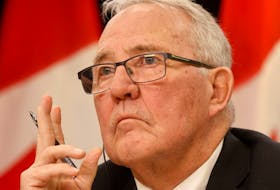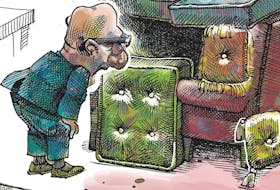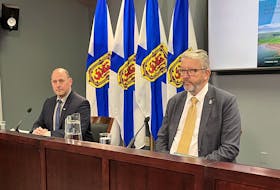After Monday’s first encounter between Ukraine’s President Volodymyr Zelenskiy and Russia’s President Vladimir Putin in Paris, there were the inevitable accusations that Putin had taken the inexperienced Zelenskiy to the cleaners. After all, what chance did an ex-television comedian have against a wily former intelligence officer?
Wrong question.
It’s not about how clever the players are, it’s about what cards they hold – and not even a diplomatic team that included Talleyrand, Metternich and Henry Kissinger could have beaten Putin’s hand.
Russia won the war years ago, although people continued to die every week along the front line in southeastern Ukraine.
Zelenskiy’s task, which is still very hard to accomplish, is to close the war down without losing anything more to Russia, and without giving Putin decisive influence over the future course of Ukraine’s politics.
After 68 months of fighting and 13,000 deaths, the military stalemate in eastern Ukraine seems permanent, but that is an illusion. The Ukrainian army cannot break it, clearly, or it would have done so and recovered the lost territory already. But Russia could move forward any time it wants.
What deters Russia from advancing further is the huge diplomatic price it would pay, including a dramatic reinforcement of NATO’s forces along its western border and even more severe sanctions. Besides, ruling over tens of millions of resentful and impoverished Ukrainians is deeply unattractive to Moscow, and could easily turn into an interminable anti-Russian guerilla war. So Russia doesn’t want any more of Ukraine.
Any realistic Ukrainian would want to close the war down, cut Ukraine’s losses in the breakaway provinces of Donetsk and Lugansk, and get on with building a better future for the other 95 per cent of the country. A peace deal between Moscow and Kyiv is therefore possible, but it is not inevitable or even indispensable.
The real measure of Zelenskiy’s realism is his Plan B. He can’t discuss it aloud himself, because he would be condemned as a defeatist and a traitor by Ukrainian super-patriots who simply ignore the realities of the situation. However, his adviser Andriy Yermak was quite frank about it at a meeting in London last week.
Ukraine’s preferred peace deal would restore the breakaway provinces, grant them wide local autonomy, and get the Russian troops out, but would not create a federal state in which those two provinces held a veto over central government policies. But if Zelenskiy can’t persuade Russia to accept that deal, then Kyiv will just walk away from the talks.
“If we don’t see readiness from Russia to ... move towards a peaceful solution with a clear-cut time frame,” said Yermak, “we’ll be building a wall, and life will continue.”
What kind of wall? He didn’t go into details, but it would clearly have to be both political and physical. Ukraine would abandon the breakaway provinces, wall them off, and get on with the rest of its life.
Since most of the people who remain in the Russian-controlled parts of those two provinces would really prefer to be part of Russia (one-and-a-half million people who prefer to be Ukrainian have already left), this would not constitute a great betrayal of innocent Ukrainian citizens. And it would free Ukraine from an unwinnable and therefore pointless war.
Maybe this won’t be necessary. Maybe Putin will be willing to make a deal that restores Ukraine’s sovereignty over its lost territories in the east (although not over Crimea), and that gives those territories autonomy without granting them a veto over central government policies. But the odds are against it.
This whole conflict was Putin’s response to the “Meydan Revolution” of February 2014 that overthrew a deeply corrupt and slavishly pro-Russian president of Ukraine, Viktor Yanukovych. To punish Ukraine, Putin seized Crimea the following month —– and then in April he sponsored the breakaway revolt by pro-Russian groups in Donetsk and Lugansk provinces.
His objective was somehow to regain a dominant Russian influence over the government in Kyiv. That has not succeeded, and he is left holding the eastern half of those two provinces, a partially depopulated post-industrial wasteland. So maybe he will cut a deal that hands them back to Ukraine and restores reasonably civil relations between Moscow and Kyiv. Or maybe not.
In either case, the relationship will stay very cool, because Russian popular opinion would never allow Putin to hand back Crimea. It is historically Russian territory, and only got transferred to Ukraine in 1954 as a result of murky machinations within the Communist Party of the Soviet Union.
The best that can be hoped for is a cold peace, and even that is not guaranteed, but Zelenskiy’s Plan B shows that he is no fool. “I don’t know who (beat) whom,” he said after the Paris meeting. “I think it would be appropriate to be diplomatic as we’ve just started talking. Let’s say for now it’s a draw.”
Gwynne Dyer’s new book is “Growing Pains: The Future of Democracy (and Work).”
RELATED:

